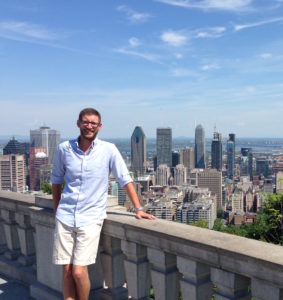After spending six weeks in Montreal doing intensive coursework in French, and making my way through daily life communicating in my second language, I’ve realized that language learning constitutes a far more intuitive process than I had realized before my stint in Canada. It also made me reflect more on my use of languages in general. When I communicate in English, my first language, I typically do not devote much energy to the use of tenses, or how I relay complex ideas. My spoken English, in other words, is lazy. When speaking in French, however, I spent a great deal of time contemplating what tense, or what turn of phrase would most convey in the most accurate manner what I wanted to communicate. I found speaking French in a precise way challenging. Consequently, I now also give more thought to my English-language delivery, reflecting more (when I can) on what words I use, or how I string together phrases to best articulate ideas. Even subtle differences can produce a world of new meanings. While I had not anticipated this going into my intensive immersion, I realize now that these skills will help me not only in my pursuit of French fluency, but also as I write my dissertation.
The complexity of language, as well as the ways in which others use their native language, taught me to appreciate language as a facet of culture. While many think of culture as the arts, music, food, etc., I found that observing (especially bilingual) people operate in two different languages fascinating, as it exposed the cultural differences between Anglophone Canada and Francophone Canada. Describing the same thing in each language recalls different histories, different cultural assumptions, and different connotations which make Quebec a fascinating place to study the French language. I would encourage anyone who wants to study a foreign language to pay special attention not just to how people go about their daily lives in their host country, but also how they describe their quotidian experiences, as it can reveal a good deal about how they think about the world, or what they find important, or most interesting for me, their history and the historical assumptions implicit in their day to day lives.
For me, I will use this knowledge, both linguistic and cultural, to continue my research for my dissertation. I will return to Montreal in the fall of 2016 for the entire academic year to research and write, and where I will continue to expose myself to the Quebecois culture and language. Having the six weeks of immersion during the summer will help me to jump straight into my work with my mental toolkit already prepared, and I hope, of course, to continue to speak French and refining my skills in the language!